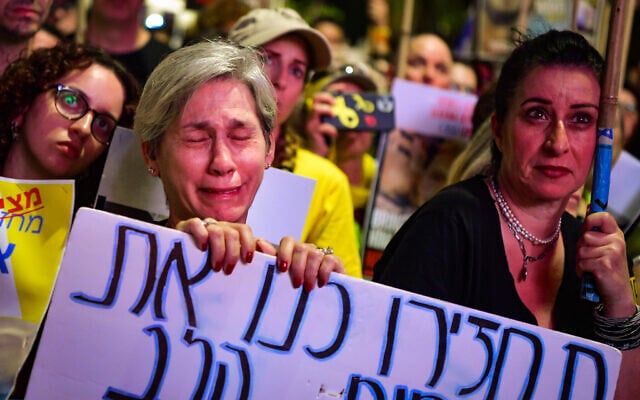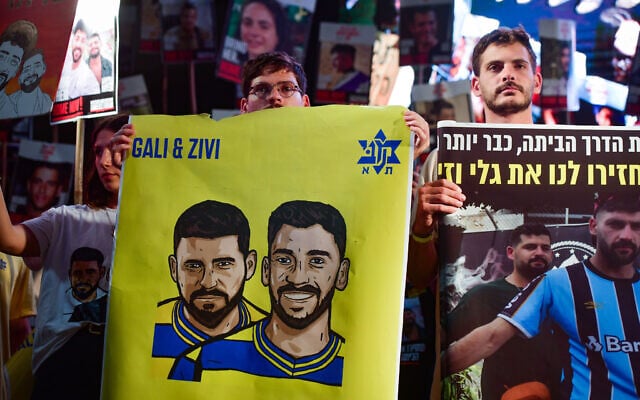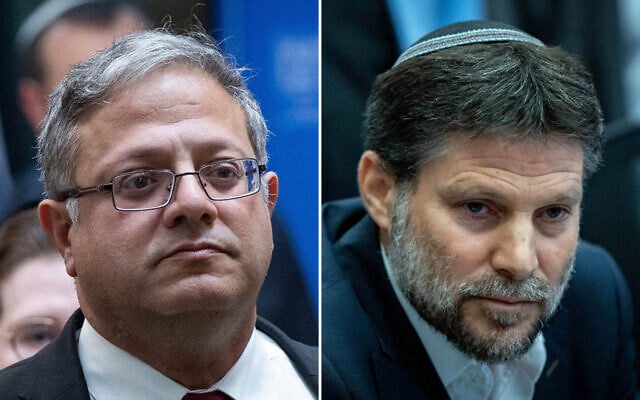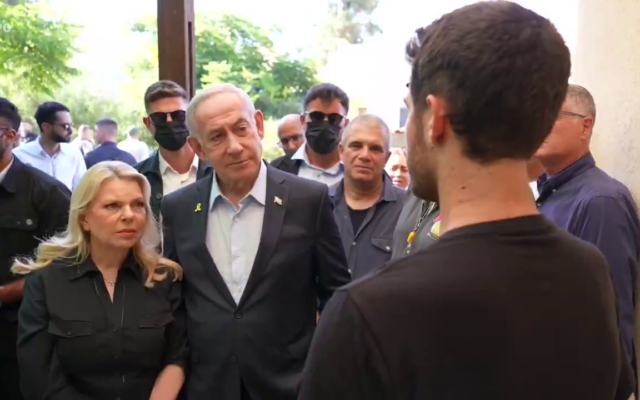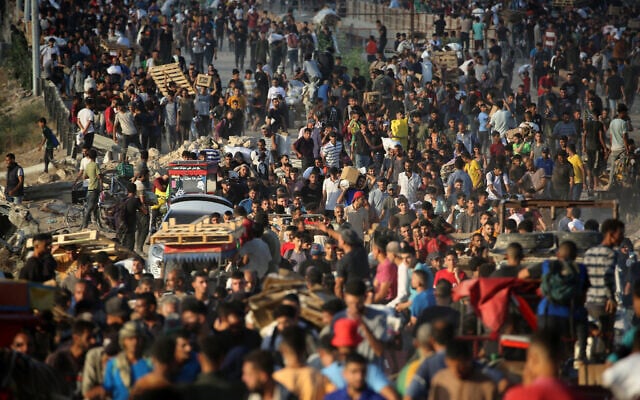


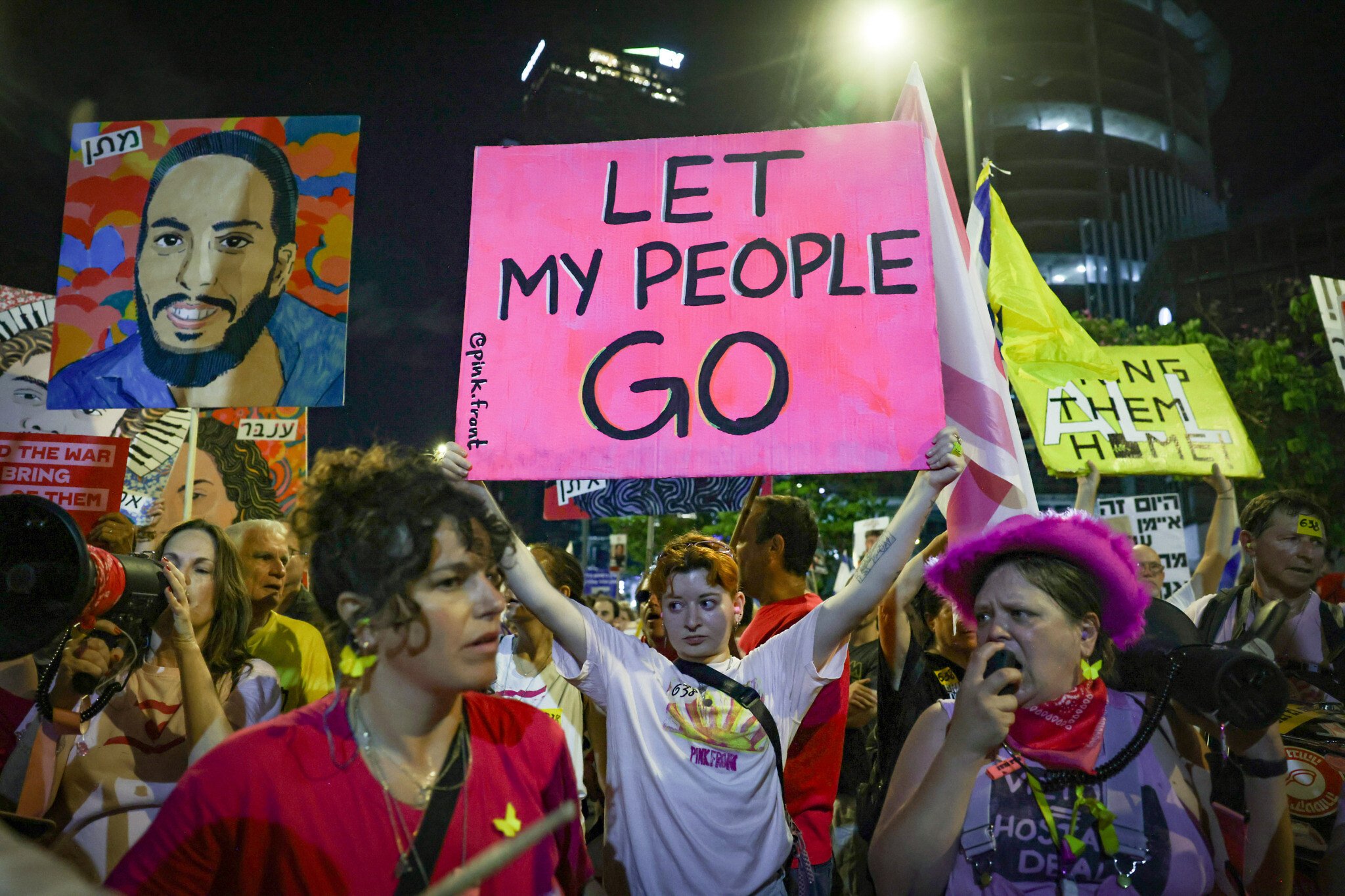
An Israeli negotiating team will head to Qatar on Sunday for indirect talks with the Hamas terror group on a hostage release and ceasefire deal, the Prime Minister’s Office said late Saturday.
However, the Prime Minister’s Office cautioned in a statement that Hamas had suggested several amendments to the proposal, which Israel found to be unacceptable.
The confirmation that Israel would dispatch a team to Qatar came as Prime Minister Benjamin Netanyahu is set to depart for Washington on Sunday to meet with US President Donald Trump where, among other items, they are expected to discuss Gaza and the ongoing negotiations.
Hamas on Friday gave a “positive” response to a US- and Israel-backed framework, which would see about half of the living hostages and about half of the dead hostages held by terror groups in Gaza returned to Israel over 60 days, in five separate releases.
According to a source involved in the mediation efforts, Hamas proposed three amendments to the proposed framework.
The source said that Hamas wants the agreement to say that talks on a permanent ceasefire will continue until an agreement is reached; that aid will fully resume through mechanisms backed by the United Nations and other international aid organizations; and that the IDF withdraw to positions it maintained before the collapse of the previous ceasefire in March.
The PMO, in response, said that the proposed changes were delivered last night, and “are not acceptable to Israel,” but that a delegation would nevertheless head to Doha on Sunday.
It did not specify which of the changes were deemed unacceptable.
As the country waits to find out if a hostage deal will truly materialize, and what shape it will take if it does, the families of the hostages rallied across the country on Saturday night, urging the government to seal a deal for the release of all the hostages at once, in exchange for a permanent end to the war.
The Hostages and Missing Families Forum, in a statement prior to the rallies, criticized the partial deal that appears to be taking shape, which, if finalized, will leave a number of hostages behind in Gaza after the 60-day truce period.
“At this critical time, we must not conform to the various ‘Schindler’s lists’ being dictated, as if it wasn’t possible to bring them all back long ago,” the forum said, invoking the memory of the roughly 1,200 Jews who survived the Holocaust by being chosen to work in Oskar Schindler’s factory.
The Forum said the method of releasing hostages via selective lists and in phases creates “unbearable uncertainty” for the families.
“All of the abductees could have been returned for rehabilitation and burial many months ago, if only the government had chosen to do so rather than operate based on considerations of political survival.”
Hostage families have previously compared partial deals — such as the weeklong truce in November 2023, which saw 105 hostages released, and the two-month pause in fighting during the first months of 2025, when 30 hostages were released — to the Nazi “selection” of Jews who arrived at death camps, between those who were sent straight to the gas chambers and those who were kept alive for forced labor.
Speaking at the forum-led rally at Tel Aviv’s Hostages Square on Saturday night, Maccabit Meyer, the aunt of twin-brother hostages Gali and Ziv Berman, invoked the reference, telling a 2,000-odd crowd: “It’s time for a deal that saves everyone, living and fallen — a deal without ‘selection.’”
Yuval Sharabi, daughter of slain hostage Yossi Sharabi and niece of released hostage Eli Sharabi, told protesters that Israel’s accomplishments over the 12-day war with Iran last month “were incredible, but if we don’t leverage that to a single comprehensive deal, it’ll be an unbearable diplomatic failure.”
“This country, Dad, is not the one you knew,” she said. “We’re working every day to bring back the values that used to be self-evident. To remind people that the living hostages have to return before we lose them like we lost you.”
Terror groups are still holding a total of 50 hostages in the Strip. Twenty of them are believed to be alive, and 28 have been confirmed dead; Jerusalem has reported “grave concerns” about another two.
Even as both sides are engaged in intense talks about a cessation of hostilities, fighting has continued to rage in the Gaza Strip, and two rockets were fired toward Israel, triggering sirens in the border community of Kissufim. Both were intercepted by the Israeli Air Force, and there were no reports of injuries or damage.
At a separate, anti-government demonstration led by hostage families on Tel Aviv’s Begin Road, Yotam Cohen, the brother of captive soldier Nimrod Cohen, assailed the emerging deal.
“Why the hell are we going for a partial deal?” he fumed, addressing a crowd of some 1,500 demonstrators. “A deal that will leave Hamas in place for at least two months takes and will take a heavy toll on the Israeli economy, and worst of all — leave 10 living hostages in captivity.”
Cohen accused National Security Minister Itamar Ben Gvir and Finance Minister Bezalel Smotrich — who have opposed previous hostage-truce deals and threatened to collapse the government if the war is allowed to end with Hamas still governing the Strip — of dragging Israel into an interminable “religious war.”
“We must not let the terrorists Ben Gvir and Smotrich sacrifice more soldiers [and] sentence more hostages to death on an altar of settlements and messianism,” said Cohen.
According to the Kan public broadcaster, Netanyahu, who hopes to avoid the two ultranationalist ministers from following through on their threats to resign, has told them that he will not allow the war to end without the demilitarization of the Gaza Strip.
He has also urged them to hold off on resigning as the Knesset breaks for the summer at the end of July, Kan reported, and to see how the first 60-day phase of the ceasefire pans out before making any decisions.
Itai Shteinmetz, 25, a reservist combat medic, also addressed anti-government protesters at the Begin Road protest, where he called for an end to the war in the name of weary soldiers.
“We are demanded to go from 0-100 so many times, that we seem to have forgotten what it’s like to live in a proper country, in a country where the aim of a war is to stop fighting,” he said.
“Our leadership thinks that we live here with the aim of fighting forever for their seats; they have it all wrong. Their job is to do everything they can so we don’t have to fight anymore.”
Prime Minister Benjamin Netanyahu convened his security cabinet around 10 p.m. on Saturday to discuss the hostage negotiations; at the meeting, it was decided that Israel would send a negotiating team to Doha, Qatar on Sunday, despite the changes Hamas suggested to the framework.
Among the changes demanded by the terror group, according to a source involved in the mediation efforts, is the provision that talks on a permanent ceasefire will continue until an agreement is reached.
Jerusalem has refused to agree to any deal that would end the war with Hamas still in control of the Strip. A previous hostage-truce deal, reached in January, outlined a three-phase process that would end with a permanent ceasefire and a full Israeli withdrawal from the Strip; Israel declined to enter negotiations on an end to the war, and the ceasefire collapsed after the first phase.
According to the same source, Hamas is demanding that aid fully resume through mechanisms backed by the UN and international aid organizations.
Jerusalem, which maintains that Hamas often commandeers these aid shipments, has instead backed the Gaza Humanitarian Foundation, a US- and Israel-backed group that seeks to avoid exploitation by terror groups; GHF, however, has seen near-daily mass casualty events at or near its distribution sites, amid acknowledged IDF fire and reported Hamas fire; on Sunday, terror group operatives attacked a GHF site, wounding two American contractors.
Finally, according to the source, Hamas wants the Israel Defense Forces to withdraw to positions it maintained before the collapse of the previous ceasefire in March.
In May, the IDF launched an operation called Gideon’s Chariots, seeking to take control of over 75% of the Strip; IDF Chief of Staff Lt. Gen. Eyal Zamir said late last month that the offensive would soon “reach the lines” set out for it.
With hostage deal talks ramping up and an Israeli delegation headed for Doha, Netanyahu will also depart Israel for Washington on Sunday, where he is expected to meet with Trump the following day.
The premier is currently scheduled to fly back on Thursday, but regularly extends his visits abroad over Shabbat, the Jewish day of rest, at the taxpayers’ expense.
Early Saturday Israel time, Trump told reporters aboard Air Force One that he had not yet been briefed on Hamas’s response to the proposal; but, he said, “I think they’re going to be positive about it. We have to get it over with.”
“There could be a Gaza deal next week,” Trump added. “I’m very optimistic. But, you know, look — it changes from day to day.”
Times of Israel staff contributed to this report.

